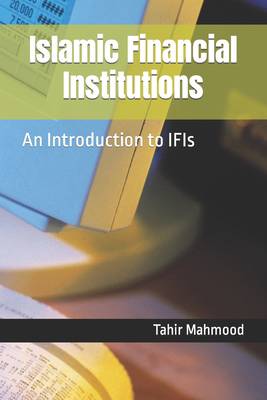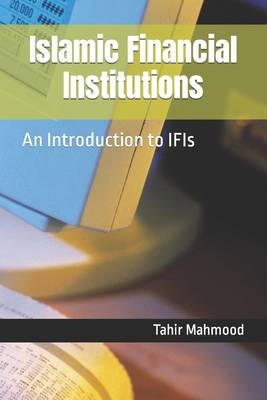
- Retrait gratuit dans votre magasin Club
- 7.000.000 titres dans notre catalogue
- Payer en toute sécurité
- Toujours un magasin près de chez vous
- Retrait gratuit dans votre magasin Club
- 7.000.0000 titres dans notre catalogue
- Payer en toute sécurité
- Toujours un magasin près de chez vous
Description
This book presents an introductory study of contemporary Islamic financial institutions (IFIs) and the Islamic Financial Services Industry (IFSI). It finds that after the political weakness of the Islamic world and the domination of Western colonialism, the Islamic economic system was largely ignored at the governmental level. Today, especially in the last half of the previous century, a new wave of awareness, consciousness, and enthusiasm has given rise to several necessary steps, including the establishment of financial institutions where Muslims conduct their financial affairs under Islamic teachings. Contemporary Islamic economy and finance is very thriving in achieving their desired position and are rapidly gaining a foothold in the global economy.
Islamic Financial Services Industry (IFSI) is offering legitimate alternatives to almost all sectors of the current economic system. The Islamic financial industry is a perfect system in terms of its size, comprehensiveness, and versatility. This industry includes central and subsidiary Islamic financial institutions that are endeavoring to provide professional services in all financial fields following Shariah principles.
The book consists of two parts.
Part I: Islamic Financial Institutions (IFIs)
Part II: Islamic Financial Services Industry (IFSI)
The first part "Islamic Financial Institutions (IFIs)" is categorized into the following main domains:
1. Knowledge and Research-Based Islamic Financial Institutions
2. The Central IFIs of Practical Implementation
3. The Subsidiary IFIs of Practical Implementation
4. Indirect Islamic Financial Institutions.
While the second part "Islamic Financial Services Industry (IFSI) reflects the following main topics and their sub-discussions:
1. Islamic Financial Institutions (in the industry)
2. Islamic Financial Sectors
3. Islamic Financial Services
4. The Future Outlook of the Islamic Financial Services Industry.
Finally, it ends with some appendices, i.e., acronyms, sources and references, and the author's introduction.
In short, this book is an overall overview of the whole Islamic financial industry, institutions, and services, which have been practiced systematically as a global industry.
This book is handy for all professionals, researchers, infield internees, students, and the general public as well who are desirous to understand the prevailing Islamic financial system as a whole unit with all its diversified aspects and branches.
I hope the book will provide enough introduction to the topic and open many horizons for further research on the discussions mentioned and arising from them.
Islamic Financial Services Industry (IFSI) is offering legitimate alternatives to almost all sectors of the current economic system. The Islamic financial industry is a perfect system in terms of its size, comprehensiveness, and versatility. This industry includes central and subsidiary Islamic financial institutions that are endeavoring to provide professional services in all financial fields following Shariah principles.
The book consists of two parts.
Part I: Islamic Financial Institutions (IFIs)
Part II: Islamic Financial Services Industry (IFSI)
The first part "Islamic Financial Institutions (IFIs)" is categorized into the following main domains:
1. Knowledge and Research-Based Islamic Financial Institutions
2. The Central IFIs of Practical Implementation
3. The Subsidiary IFIs of Practical Implementation
4. Indirect Islamic Financial Institutions.
While the second part "Islamic Financial Services Industry (IFSI) reflects the following main topics and their sub-discussions:
1. Islamic Financial Institutions (in the industry)
2. Islamic Financial Sectors
3. Islamic Financial Services
4. The Future Outlook of the Islamic Financial Services Industry.
Finally, it ends with some appendices, i.e., acronyms, sources and references, and the author's introduction.
In short, this book is an overall overview of the whole Islamic financial industry, institutions, and services, which have been practiced systematically as a global industry.
This book is handy for all professionals, researchers, infield internees, students, and the general public as well who are desirous to understand the prevailing Islamic financial system as a whole unit with all its diversified aspects and branches.
I hope the book will provide enough introduction to the topic and open many horizons for further research on the discussions mentioned and arising from them.
Spécifications
Parties prenantes
- Auteur(s) :
- Editeur:
Contenu
- Nombre de pages :
- 108
- Langue:
- Anglais
- Collection :
Caractéristiques
- EAN:
- 9798840182055
- Date de parution :
- 10-07-22
- Format:
- Livre broché
- Format numérique:
- Trade paperback (VS)
- Dimensions :
- 152 mm x 229 mm
- Poids :
- 154 g

Les avis
Nous publions uniquement les avis qui respectent les conditions requises. Consultez nos conditions pour les avis.






